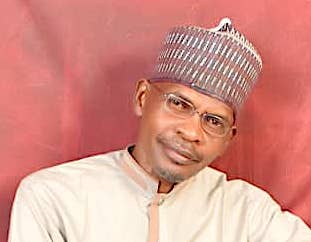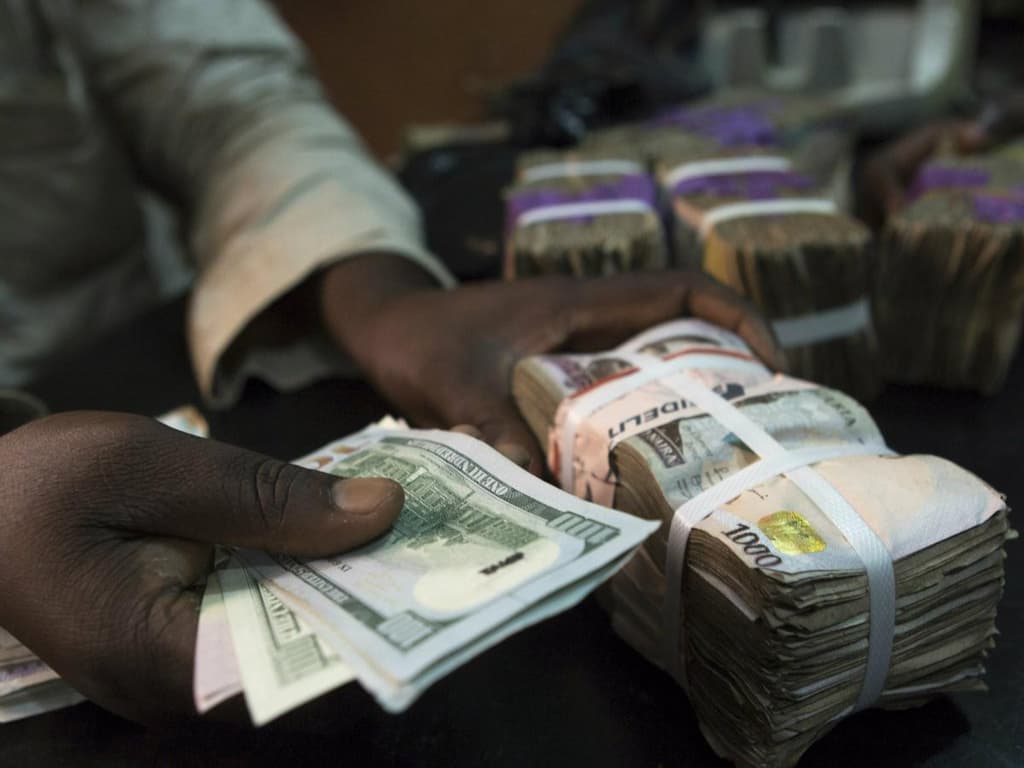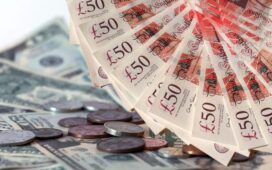Addressing the falling naira’s value requires a multi-pronged approach but definitely not the ones being followed presently, and to navigate these uncharted waters successfully, visionary leadership that transcends textbook solutions is essential. Indeed, Nigeria is at a crossroads, and its future depends on the choices and actions of its leaders and citizens.
Nigeria stands at a critical juncture, grappling with self-inflicted and interconnected challenges spanning foreign policy, crude oil production and sales, and the depreciating value of the naira against international currencies, which threaten its stability and development. This underscores the urgency of decisive action and visionary leadership, but do those ‘straddling the corridors of power’ have it?
The current economic landscape demands a nuanced understanding of the intricacies at play and requires innovative solutions to steer the nation towards stability and prosperity.
How did Nigeria get to this point?
Let’s cast our mind to the 2023 general elections, during which there was so much noise about the catch phrase, “follow who sabi road.” Now Nigerians are wiser, “d guys no sabi road at all at all.”
In essence, to be able to solve this predicament, a “birds eye view” of Nigeria’s challenges is required; this view can only be seen by the person at the helm of affairs.
Who Needs the Dollars?
There are two approaches. To put issues into perspective let’s examine them.
- The official narrative given to Nigerians by those employed to make sure the naira is stable is that the rise in requisition for foreign currencies and hence its rates is due to the high demand for foreign school fees payments, medical tourism, the dwindling foreign reserves, exit of Foreign Portfolio Investors (FPI), and oil theft.
- The unofficial narrative, which is also the sensible and scientific, is that the astronomical rise in demand for dollars are due to the inability of the Central Bank of Nigeria (CBN) to meet requests, lack of returns from the Nigeria National Petroleum Company Ltd (NNPCL), huge Federal Accounts Allocation Committee (FAAC) receipts accruing to all tiers of government leading to the massive purchase of dollars by state actors, the hoarding of forex by individuals and government officials and, most importantly, the archaic and outdated economic text book approach of the CBN’s foreign exchange management style.
Will the CBN, the Federal Ministry of Finance and the Presidential Fiscal Policy and Tax Reforms Committee Ever Get It Right?
The individuals chosen by Mr President, in their naïve and egregious nature, believing that Nigeria is a text book case, decided to proffer textbook approaches which are alien and incompatible with Nigeria’s financial and economic terrain, lacking consideration of the thinking and behaviour of the average Nigerian. This is what led to the adoption of the decisions taken thus far.
- COVID-19 period: The naira was devalued several times between 2020 and 2021 from about N306/$ to N360/$, and to about N381/$, and then to about N410/$. This period witnessed a total lockdown, with almost all economic activities grounding to a halt, yet the naira was devalued due to the crass, unpatriotic and selfish interest of a few.
- Suspension of the sale of forex to the Bureau De Change operators: This and reduced weekly forex allocations to commercial banks created a shortage in the market and increased the pressure on the naira. Thus, leading Nigerians to embrace cryptocurrencies to hedge against inflation and currency instability.
- The CBN’s race to US$200 billion in FX repatriation (RT200 FX programme): This was a programme launched in 2022, with the aim of boosting the inflow of foreign exchange from non-oil exports. It had five key anchors.
- The Announcement: The crisis in the foreign exchange market deepened after the announcement of the floatation of the naira and collapse of the multiple exchange regime a few days after the president was sworn in.
- The CBN, Customs duty exchange rate and taxation: In their bid to be confirmed to head their various agencies, the CBN, Nigerian Customs and tax authorities, instead of fostering fiscal stability, decided to go on a merry-go-round revenue drive, which led to huge losses as a result of exchange rate volatility, naira devaluation and thence the inflation being witnessed.
- Ban of payment of Travel Allowance in cash.
- Ban of Payoneer, World Remit and others from making dollar transfers to Nigeria: The full effect of this policy is yet to be seen.
- Removal of ± 2.5% cap spread on forex transactions among banks.
- The quick wins of the Presidential Fiscal Policy and Tax Reforms Committee: They advised the imposition of excise tax on foreign exchange transactions outside the official market. This sounds fantastically silly. The market will just transfer the burden to the buyer, while the buyer will have to siphon and cook the books more to be able to buy the dollar.
- Raiding the black market with guns: That’s what the government did on the 21st of February. Will this brigandage rescue the naira?
- The 2024 exposure draft of the Revised Regulatory & Supervisory Guidelines for BDCs: A preliminary review of the draft portrays doubt about its efficacy.
- Resumption of $20,000 weekly release to the BDCs: Will this change in posture be the panacea? We wait to see.
Time for Visitation
1. The Steve Hanke’s Currency Watchlist
A quote from his X (formerly Twitter) handle on 3rd June 2023, captured the crisis succinctly.
“As Buhari passes his throne of corruption to Pres. Tinubu, #Nigeria’s economic woes continue to worsen. In this week’s Hanke’s #CurrencyWatchlist, Nigeria takes 20th place. The naira has depreciated by 26% vs the USD since 1/1/22: yet another central bank junk currency. AT 770/$. As at 26/5/2023.”
2. The Financial Markets Dealers Quotations (FMDQ) Security Exchange
It’s the official forex trading portal recognised by the CBN and the “Platform for Reliable Financial Market Data”.
As at end of business on 21st of February, the Nigerian Autonomous Foreign Exchange Rate Fixing (NAFEX) was N1551.90/$ ,while the Nigerian Autonomous Foreign Exchange Market (NAFEM) closed at N1542.58/$.
The black-market rate determined by the forces of demand and supply as at 21st of February was in the range of N1,600.00/ $.
3. 10 Weakest Currencies in Africa Against the USD in 2024
Using information from Google Finance and backed by data from Forbes Currency Converter on the 12th of February, Business Insider Africa, showed Nigeria in the 10th position, with São Tomé and Príncipe in 1st, Sierra Leone in 2nd, and Malawi in the 9th position.
Conclusion
Addressing the falling naira’s value requires a multi-pronged approach but definitely not the ones being followed presently, and to navigate these uncharted waters successfully, visionary leadership that transcends textbook solutions is essential. Indeed, Nigeria is at a crossroads, and its future depends on the choices and actions of its leaders and citizens.
Adamu Rabiu Writes from Kaduna.
Support PREMIUM TIMES’ journalism of integrity and credibility
Good journalism costs a lot of money. Yet only good journalism can ensure the possibility of a good society, an accountable democracy, and a transparent government.
For continued free access to the best investigative journalism in the country we ask you to consider making a modest support to this noble endeavour.
By contributing to PREMIUM TIMES, you are helping to sustain a journalism of relevance and ensuring it remains free and available to all.
TEXT AD: Call Willie – +2348098788999










